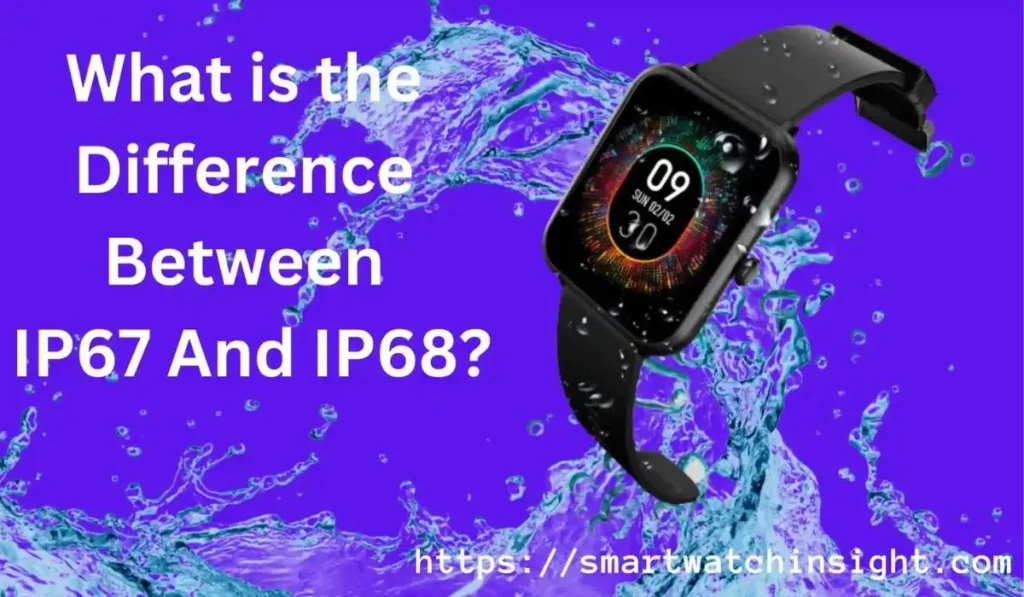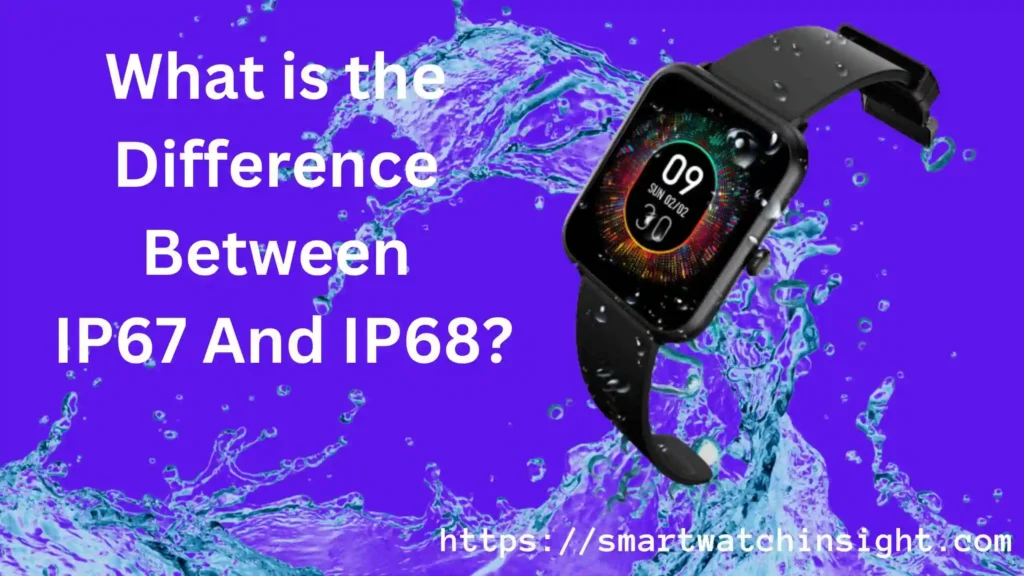Electronic devices become a necessary component of our daily lives. Even if it’s smartphones, smartwatches, or even outdoor equipment, we often come across terms like IP67 and IP68.
These ratings indicate the level of protection an electronic device has against water and dust. In this post, we will examine the variations between the IP67 and IP68 ratings to discover which is most appropriate for your requirements.
According to IP67 standards, a device is dust- and water-resistant up to 1 meter (3.3 feet) and can be submerged for 30 minutes. This implies that while you can swim in a pool or the ocean with your phone or other gadget that has an IP67 classification, you shouldn’t use it for deep-sea fishing or scuba diving.
A device is dust– and water-resistant if it has an IP68 rating, which allows it to be submerged in water for an extended period at a depth greater than 1 meter. Depending on the particular gadget, the precise depth and time will change.
Devices that are IP68 are typically more water resistant than those that are IP67. Both ratings, meanwhile, provide a good defense against water and dust. An IP67 or IP68 item will be a good choice if you’re looking for a device that you can use in the water.
What are IP67 and IP68? | Which is Better IP68 or IP67?

Before comparing, let’s understand what IP67 and IP68 ratings mean. IP is “Ingress Protection,” and a two-digit number follows it. The first digit indicates the level.
The first digit of an IP rating is a measure of a device’s dust resistance. In contrast, the second digit indicates how well it is protected from water.
For IP67 and IP68, the number 6 denotes the maximum level of dust resistance, and the numbers 7 and 8 denote different levels of water resistance.
The Meaning of IP67
IP67-rated devices can dip in the pool or shower without any risk of water damage. They are even dustproof, so you can use them in dusty environments without worrying about them getting clogged up. They protect against rain exposure, water splashes, and errant water drops. However, they are not recommended for prolonged submersion or underwater activities. Regarding dust resistance, IP67-rated devices provide complete protection against dust particles.
The Meaning of IP68
IP68-rated devices take water resistance a step further. They can spend longer periods underwater than one meter deep, generally up to 1.5 meters for 30 minutes or more. These devices are perfect for swimming, snorkeling, and other water sports. Additionally, IP68-rated devices also offer complete protection against dust particles.
Water Resistance Comparison Between IP67 and IP68
When it comes to water resistance, IP68 is superior to IP67. While IP67-rated devices can withstand accidental water exposure and rain, IP68-rated devices provide better protection against water immersion.
If you frequently engage in water activities or work in environments where water exposure is common, an IP68-rated device would be more suitable.
Dust Resistance Comparison Between IP67 and IP68
In terms of dust resistance, both IP67 and IP68 ratings offer the same level of protection.
They provide complete safeguarding against dust particles, ensuring the device’s internal components remain unaffected.
Whether in a dusty construction site or an arid desert, IP67 and IP68-rated devices will prevent dust from entering and causing damage.
Read Also >> IPX7 vs IP67: Which Is Better?
Factors to Consider When Choosing IP67 and IP68 Devices
Evaluating your demands and requirements is critical when deciding between IP67 and IP68-rated products. Here are some factors to keep in mind:
Intended Use: If you plan to use the device near water or in water-related activities, an IP68-rated device would be more appropriate.
Budget: IP68-rated devices tend to be more expensive than IP67-rated devices due to their higher level of water resistance.
Design: Some devices with an IP68 rating may have additional features to enhance water resistance, such as sealed ports or reinforced frames.
Consider your lifestyle and usage patterns to decide on the IP rating that best suits you.
Pros and Cons of IP67
Pros:
- Offers protection against accidental water exposure and rain.
- Provides complete safeguarding against dust particles.
- Relatively more affordable compared to IP68-rated devices.
Cons:
- Not suitable for prolonged submersion in water or water-related activities.
- It may not have additional design features to enhance water resistance.
Pros and Cons of IP68
Pros:
- Can withstand water immersion beyond 1-meter depth for a longer duration.
- Offers complete protection against dust particles.
- Best for swimming, snorkeling, and other water-related activities.
Cons:
- Tends to be more expensive than IP67-rated devices.
- Additional design features may vary across different devices.
Conclusion
In the battle of IP67 vs IP68, there is no clear winner. The choice between the two ratings depends on your specific needs and preferences.
If you require a device with better water resistance for water-related activities, IP68 is the way to go.
On the other hand, if you want a device that provides basic protection against accidental water exposure and dust, IP67 is sufficient.
Evaluate your requirements, consider the factors mentioned earlier, and make a decision that suits your lifestyle.
FAQs (Frequently Asked Questions)
Q1. Can IP67 and IP68-rated devices be used underwater for photography?
Yes, IP68-rated devices are suitable for underwater photography, while IP67-rated devices are not recommended for extended underwater use.
Q2. Are IP67 and IP68 ratings permanent?
The IP rating is assigned during manufacturing and remains constant throughout the device’s lifetime.
Q3.Can IP67 and IP68-rated devices be charged wirelessly?
Yes, IP67 and IP68-rated devices can support wireless charging without issues.
Q4. Which is better IP68 or IP67?
IP68 is better than IP67 in terms of water resistance. IP68 is rated to resist submersion of at least 1 meter and up to 30 minutes, plus an additional depth and length of time specified by the manufacturer.
IP67 is rated to resist submersion, but only at a depth of 1 meter and for 30 minutes.
Q5. Is IP67 completely waterproof?
IP67 isn’t watertight, though. It can be submerged in water for 30 minutes at a depth of up to one meter (3.3 feet) and is protected against dust entry. The grade does not, however, ensure that the item will be safe under all circumstances. For instance, if the gadget is dropped into water or is submerged in water under high pressure, it might not be protected.
Q6. Is IP68 OK for swimming?
IP68 is suitable for swimming, yes. Devices having an IP68 classification are resistant to dust ingress and can be submerged in water for longer periods at depths greater than 1 meter. Depending on the particular gadget, the precise depth and time will change.
Q7. Is IP68 rainproof?
Yes, IP68 gadgets are rainproof. The IP68 classification indicates that the device is resistant to dust ingress and may be submerged in water for an extended period at depths greater than 1 meter. This indicates that the equipment can endure rain, even severe rain.

